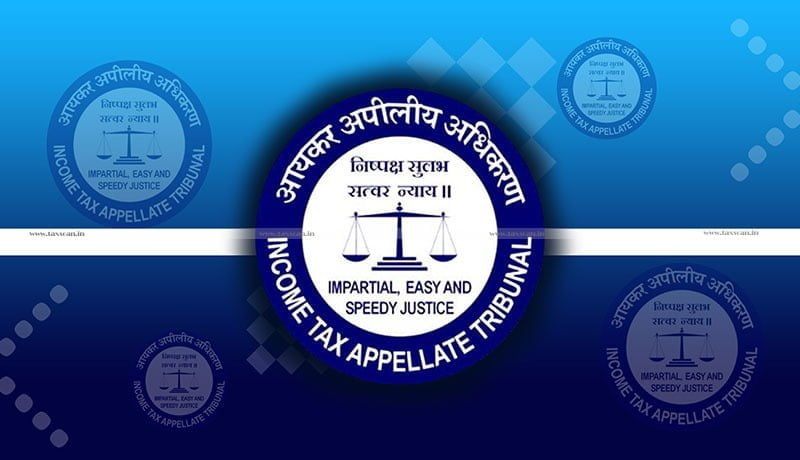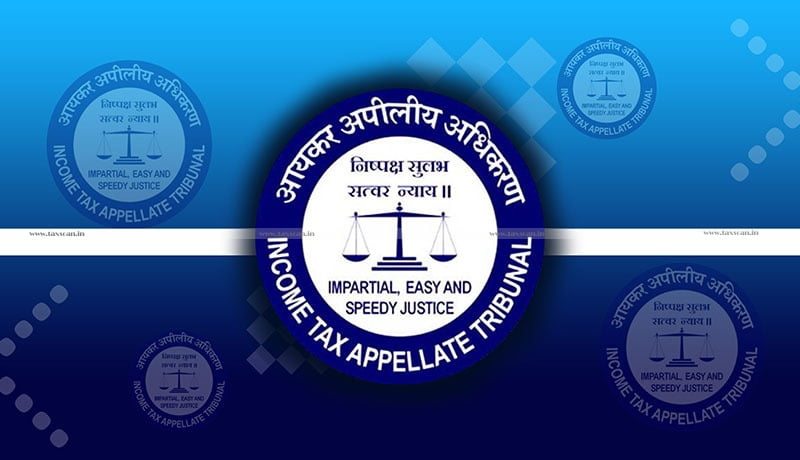ITAT reaffirms Principle of Consistency: Directs AO to Retain Long-Standing Expense Allocation Method for Sysmex India Pvt Ltd [Read Order]
The Tribunal held that the AO must retain the sales-based allocation method for common expenses which was consistently followed and accepted in past assessments under Section 80-IC
![ITAT reaffirms Principle of Consistency: Directs AO to Retain Long-Standing Expense Allocation Method for Sysmex India Pvt Ltd [Read Order] ITAT reaffirms Principle of Consistency: Directs AO to Retain Long-Standing Expense Allocation Method for Sysmex India Pvt Ltd [Read Order]](https://images.taxscan.in/h-upload/2025/06/12/2043143-sysmex-india-pvt-ltd-site-img.webp)
The Mumbai bench of Income Tax Appellate Tribunal (ITAT) in a recent ruling directed the AssessingOfficer (AO) to accept the sales-based allocation of common expenses for computing deduction under Section 80-IC of the Income Tax Act, 1961, noting that the method was consistently followed by the assessee and accepted by the department in the past, and any deviation to the same would constitute a breach to the rule of consistency.
 Also Read:ITAT directs to Follow the Principle of Consistency; Dept. Cannot Reject the Methodology Followed for the Past Years Without Change in Circumstance [Read Order]
Also Read:ITAT directs to Follow the Principle of Consistency; Dept. Cannot Reject the Methodology Followed for the Past Years Without Change in Circumstance [Read Order]
The appellant, Sysmex India Pvt Ltd, engaged in the manufacture and distribution of diagnostic instruments and reagents, filed its return of income for the Assessment Year (AY) 2017–18.
The return was selected for scrutiny and the AO sought justification for allocation of expenses between the eligible undertaking at Baddi, Himachal Pradesh which qualified for deduction under Section 80-IC and non-eligible undertakings.
Comprehensive Guide of Law and Procedure for Filing of Income Tax Appeals, Click Here
The appellant submitted that it had been consistently allocating common expenses based on the sales ratio between the eligible and non-eligible units, a method that had been accepted in earlier years by the department without dispute.
 Also Read:ITAT adopts Principles of Consistency and uniformity on Co-owners subjected differently by Revenue Dept. [Read Order]
Also Read:ITAT adopts Principles of Consistency and uniformity on Co-owners subjected differently by Revenue Dept. [Read Order]
It was further stated that wherever expenses are specifically incurred either for the eligible undertaking or non-eligible undertaking, they are allocated on actual basis.
The AO rejected the above method and, being of the firm belief that management fees and remuneration paid to the managing director had to be allocated on a gross profit basis, accordingly re-allocated the same. The Commissioner of Income Taxes ( CIT(A) ) upheld the reallocation made by the AO.
The assessee contended before the tribunal that the allocation of common expenses in sales ratio had been approved by judicial authority and is prudent and rational. This method has been followed for the past number of years consistently and accepted by the department in the past. Hence it was contended that there is no reason to deviate from this rational basis in the current year.
The assessee further relied on the decision of the Bombay High Court in Principal CIT v. Quest Investment Advisors Pvt Ltd (2018) where it was held that if revenue authorities consistently over for 10 years and in subsequent 4 years had accepted the principle, then in the current assessment year no different view could be taken against the assessee unless there was any change in the facts of the case.
 Also Read:ITAT Upholds Tax Exemption for Trust, Citing Consistency in Previous Assessments [Read Order]
Also Read:ITAT Upholds Tax Exemption for Trust, Citing Consistency in Previous Assessments [Read Order]
The bench comprising Narendra Kumar Billaiya (Accountant Member) and Sunil Kumar Singh (Judicial Member) found merit in the appellant’s contention, observing that the basis of allocation had been accepted by the AO in past assessment years. It was held that there was no merit in the action of the AO, as it was in breach of the rule of consistency.
The Tribunal accordingly directed the AO to accept the basis of allocation made by the assessee and allowed the appeal by the appellant.
The appellant was represented by Deepak Tikekar, C.A. and Ashish Thakurdesai, C.A., while the Department was represented by Bhangepatil Pushkaraj Ramesh, Sr. D.R.
Support our journalism by subscribing to Taxscan premium. Follow us on Telegram for quick updates


